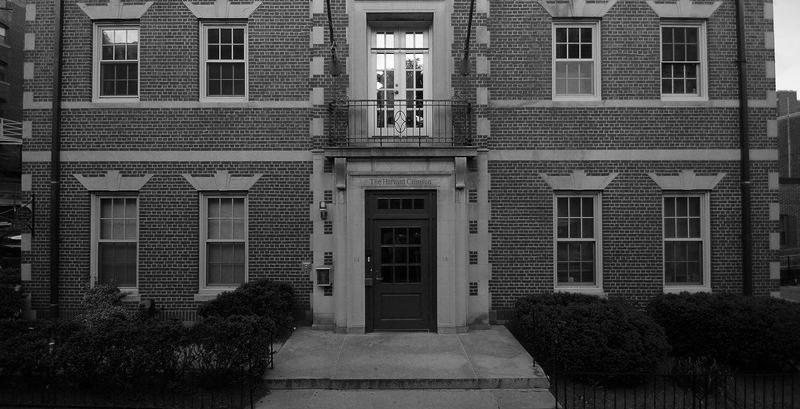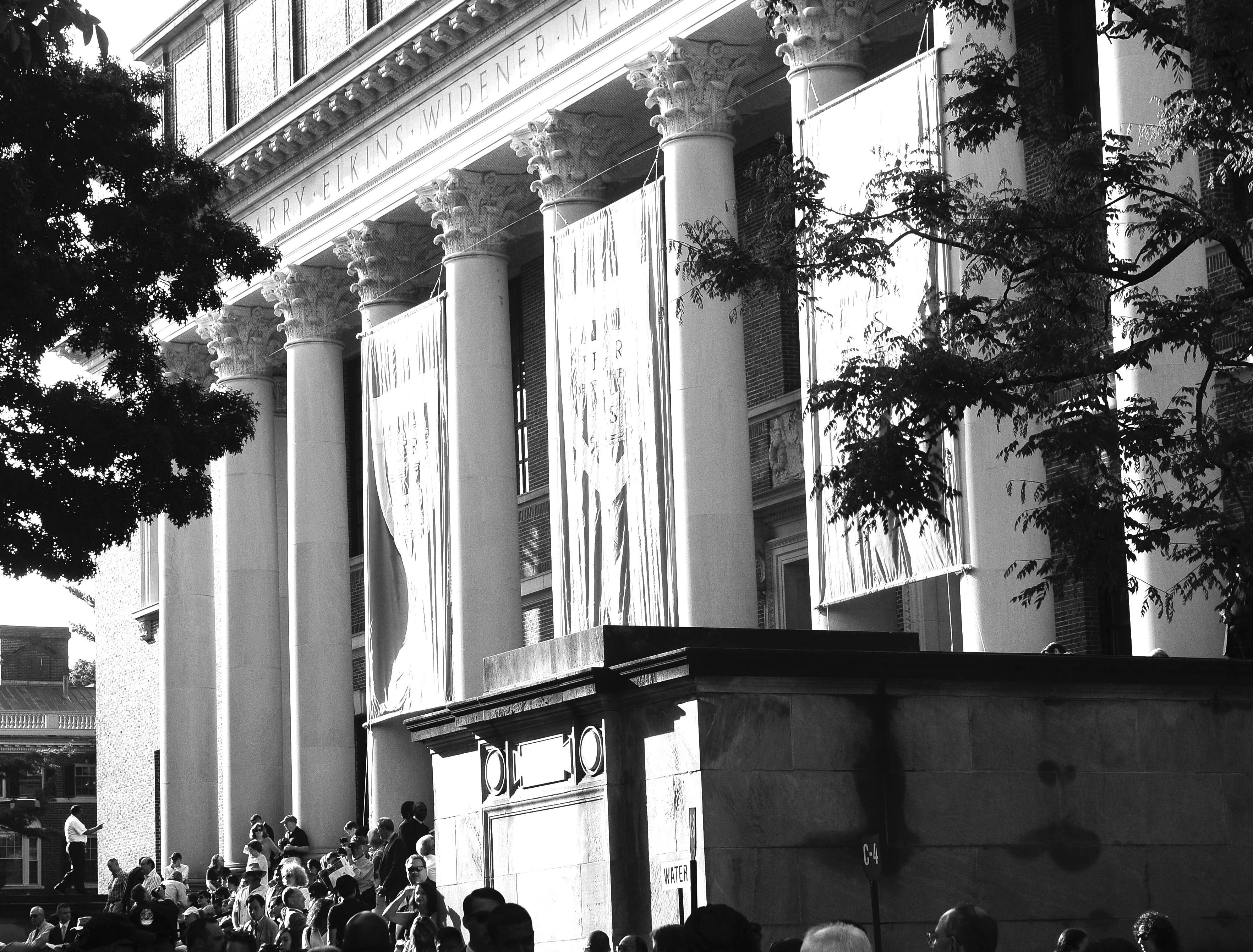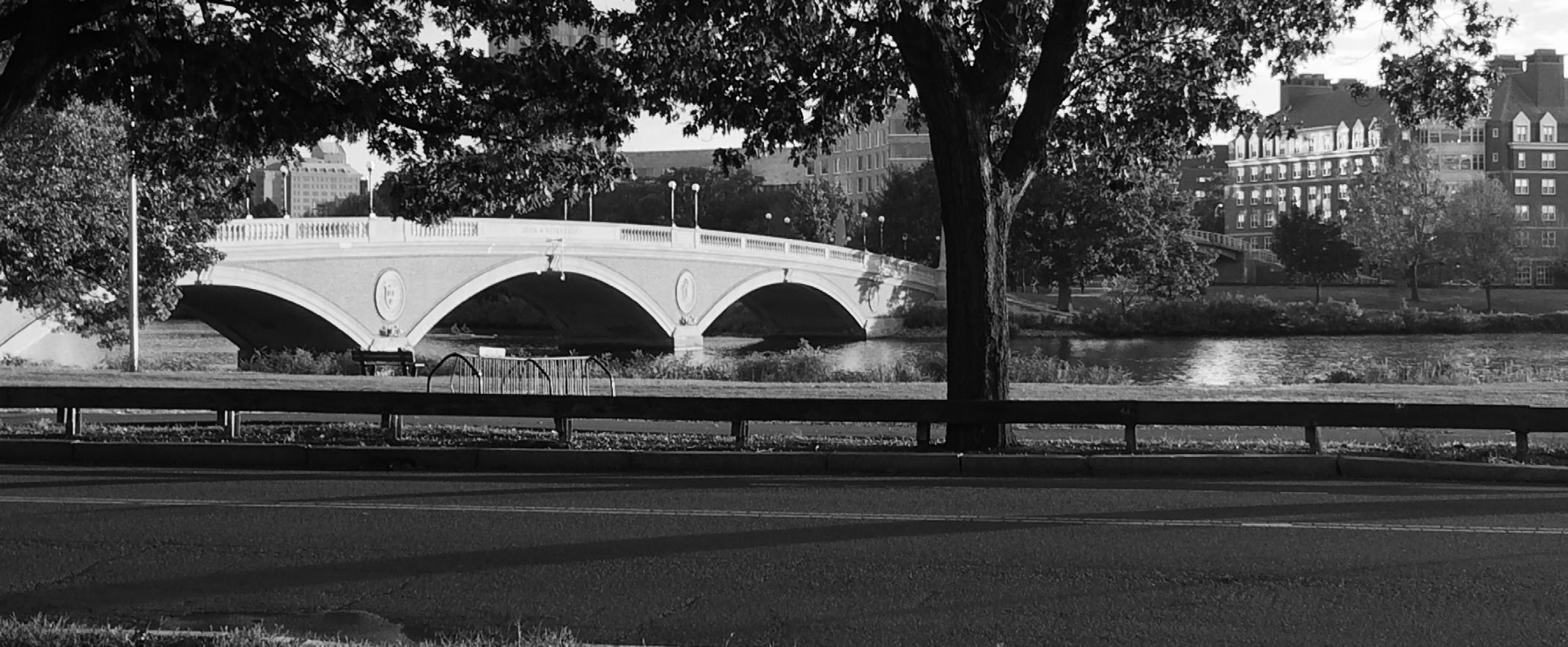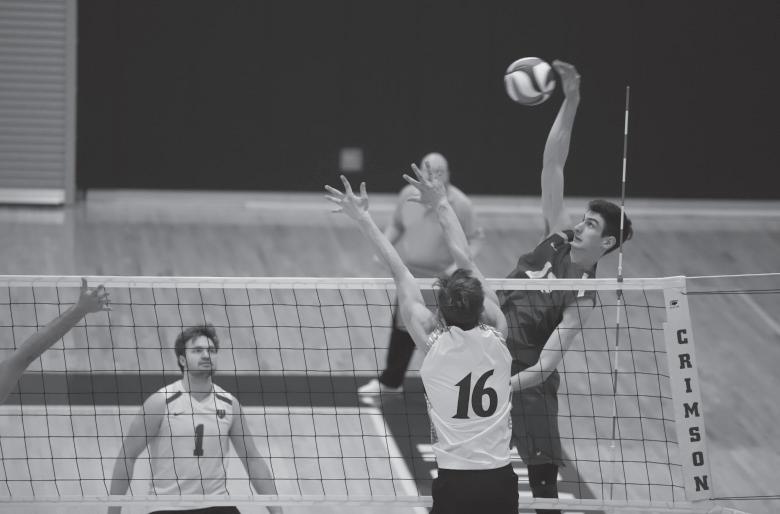
23 minute read
News
Committee Voted on Company Practices
By CAMILLE G. CALDERA and ELLEN M. BURSTEIN CRIMSON STAFF WRITERS
Harvard’s Committee on Shareholder Responsibility, which is tasked with handling issues of corporate social responsibility, voted on four resolutions presented to Facebook shareholders during the last fiscal year, according to a Friday report. Though the Harvard Management Company increasingly turns to external money managers to invest its $40.9 billion endowment, it still retains shares in some publicly traded companies.
Facebook is “one of the few publicly traded companies in which HMC directly held voting shares as of the relevant date in 2019,” per the report.The Corporation Committee on Shareholder Responsibility — which consists of several members of the Harvard Corporation and is chaired by Senior Fellow William F. Lee ’72 — is responsible for all final decisions on shareholder resolutions.
Two of the resolutions — which the committee opposed — were related to conservative political ideology at Facebook. Several American conservative politicians have accused Facebook, founded by Harvard dropout Mark E. Zuckerberg, of political bias as the company faces scrutiny for its role in spreading misinformation during the 2016 presidential election.
The first of the two resolutions was based on “concerns that the company’s board lacks ideological diversity and that conservative views cannot safely be expressed in some American boardrooms,” per the report.
The resolution requested that a minimum qualification for board nominees be set, and requested that all nominees’ skills, ideological perspectives, and experience be presented in a chart or matrix form.
The report said that, in voting against the resolution, committee members reflected upon substantive differences between categories such as gender, sexuality, race, and ethnicity, which are not a matter of personal choice, and “ideological perspectives,” which are.
The second resolution sought information on “affirmative action and protection for conservatives” at Facebook, asserting that there is a “dominant political ideology” at Facebook that makes it an unwelcome work environment for some employees. It also requested a report on programs to protect and support employees who “do not share all or part of Silicon Valley’s dominant political ideology,” and to recruit employees from “free-market, conservative and libertarian think tanks, political organizations and job banks.”
The committee voted against the resolutions, based on “reservations” about using ideology as a criterion for affirmative action and the existence of discrimination against employees with conservative views at Facebook. The committee voted in favor of a proposal introduced in 2018 that asked Facebook to publish a report evaluating “content governance,” with regard to the dissemination of hate speech, misinformation, and images or videos of extreme violence and cruelty.
They also voted in favor of a 2019 resolution that requested Facebook report its global median gender pay gap.
The report also contained “subject-specific proxy voting guidelines” drafted throughout the year to match the changing nature of HMC’s investment strategy, which involves less direct investment in individual companies and relies more on outside money managers.
Three of the eight guidelines focused on the environmental impact of businesses that Harvard invests in by proxy. They included support for reporting and reducing methane emissions, reporting on business risks and climate change, and reducing waste of plastic/polystyrene products.
Harvard has faced calls from students and faculty to divest from the fossil fuel industry. University administrators, including University President Lawrence S. Bacow, have resisted calls for divestment.
The proxy guidelines also addressed topics such as lobbying and political spending, anti-genocide policies, and gender-, race-, and ethnicity-based pay disparities.
camille.caldera@thecrimson.com ellen.burstein@thecrimson.com
Democratic Candidates Speak at NH Dinner
By JASPER G. GOODMAN CRIMSON STAFF WRITER
MANCHESTER, N.H. — Democratic presidential hopeful Peter P. M. Buttigieg ’04 fended off rivals’ recent criticisms at a New Hampshire Democratic Party event attended by nearly all the major Democratic primary candidates Sunday.
Buttigieg, a former Crimson editorial editor, faced criticism over the weekend from former Vice President Joseph R. Biden, Jr., as well as United States Senators Elizabeth Warren (D-Mass.) and Amy Klobuchar (D-Minn.).
Biden — who came in fourthplace in in the Iowa caucuses last week and is lagging in the polls in New Hampshire, which will hold its primary on Tuesday — released an ad criticizing Buttigieg’s work as the mayor of South Bend, Ind., on Sunday. Though he did not name Biden, Buttigieg responded to criticisms in the ad Sunday night at the McIntyre-Shaheen 100 Club Dinner — an annual fundraiser for the New Hampshire Democratic party held at the 11,000-seat Southern New Hampshire University Arena. “I know some are asking: What business does a South Bend Mayor have seeking the highest office in the land?” Buttigieg said. “You don’t have an office in Washington. You don’t have decades of experience in the establishment. The city you’re the mayor of isn’t even the biggest city in the country — it’s more like Manchester, New Hampshire.”
“To which I say, that is very much the point. Because Americans in small rural towns, in industrial communities — and yes, in pockets of our country’s biggest cities — are tired of being reduced to a punchline by Washington politicians and ready for somebody to take their voice to the American capital,” he added.
Diego A. Garcia ’20, the co-founder of Harvard College Democrats for Biden, said in an interview that the former vice president’s record “speaks for itself” in contrast to Buttigieg’s. “I think that Vice President Biden has the utmost respect for our mayors and local government across the country,” Garcia said.
“But at the end of the day, what matters in a presidential primary cycle — in a presidential election — is what you’ve accomplished in life,” he added. Sanders, a former Harvard Institute of Politics resident fellow, also sharpened his criticisms of Buttigieg over the weekend by painting him as wealthy donors’ candidate of choice at campaign events and on Twitter.
Buttigieg responded Sunday night at the event by rebuking Sanders’ call for a “political revolution.”
“With a president this divisive, we cannot risk dividing Americans further, saying that you must either be for a revolution or you must be for the status quo,” Buttigeig said, drawing boos from Sanders supporters in the crowd.
Garcia said he thinks Sanders supporters booing other candidates is unhelpful for party unity.
“I just don’t think it’s healthy for the party for us to be trying to sow this type of discord,” he
Peter P. M. Buttigieg ‘04 Democratic Primary Candidate
said.
Harvard College Democrats for Andrew Yang President Michael Zhu ’22, who attended Sunday’s McIntyre-Shaheen dinner, said in an interview that after hearing from every major Democratic presidential hopeful except for Michael R. Bloomberg — who is not on the ballot in the Granite State — he feels comfortable pledging support to the eventual nominee.
“Regardless of anything else, I still consider myself a lifelong Democrat,” Zhu said. “Even before I could actually vote, I’d still stand behind my party, of course.”
jasper.goodman@thecrimson.com
DEMS FROM PAGE 1
Harvard Dems Flock to New Hampshire
businessman Andrew M. Yang trekked to the Granite State to take part in canvassing and campaign events.
“I really enjoy canvassing,” Harvard College Democrats for Biden co-founder Amelia M. Apgar ’20 said. “I think it’s one of the most important parts of running a campaign because you actually are face-toface speaking to the people who matter.”
Apgar traveled to volunteer in the Manchester area with three other Harvard students who support Biden.
Diego A. Garcia ’20, who founded Harvard College Democrats for Biden alongside Apgar, said the former vice president’s disappointing performance in the Iowa caucuses last Monday has sparked interest in the Biden group on campus. After technical problems delayed the results from being reported last Monday, Biden finished in a distant fourth place with support from just under 16 percent of caucusgoers. The Associated Press eventually decided it could not declare a winner after significant errors in the results were found. “I think that our Harvard for Biden membership, in addition to a lot of traditional Harvard College Democrats members, [has] really appealed to other demographics within Harvard — other groups within Harvard who have not necessarily canvassed before,” Garcia said. “And they realize with the disappointing result — the gut punch that we received in Iowa — that it was not the time to be sitting on the sidelines.”
The Biden group’s canvassing efforts focused mostly on voter turnout during the final weekend before the election.
“At this point, I’m not trying to turn a Warren voter over to Biden or anything like that,” said Garcia, who previously canvassed in both Iowa and New Hampshire for Biden.
Some students knocking doors for other Democratic hopefuls took a different tack, however.
Harvard College Democrats for Andrew Yang volunteers Michael Zhu ’22 and J. Alexander White III ’23, who doorknocked for much of the day on Saturday, engaged in sometimes lengthy conversations with voters at the door.
Zhu, a Social Studies concentrator who founded Harvard College Democrats for Andrew Yang, said canvassing helps to “put a face” on the Yang campaign.
“If I can even get some people to see both Andrew Yang, but also just a guy wearing a blue hat that says MATH knocking on their door and telling them about health care or about education reform — I think putting a face on the campaign is so much of what canvassing is about,” Zhu said.
The Yang canvassers ran into some New Hampshire residents who were skeptical of the former start-up executive’s ability to pay for his signature proposal — a universal basic income program that would provide American adults with a $1,000-permonth “Freedom Dividend.”
Zhu directed one voter who expressed reservations about the policy toward a New York Times op-ed written by longtime Harvard economics professor N. Gregory Mankiw, who called Yang’s plan “practical.”
“It’s definitely something backed up by plenty of research,” Zhu said.
Despite some voters’ concerns about paying for universal basic income, White said he thinks Yang is electable and could win some voters who supported President Donald J. Trump in 2016.
“You have a guy who in a Democratic primary is actually willing to say that Donald Trump did not create all the evil in the world, and that, you know, some of the problems in the world actually created Donald Trump,” White said.
Roderick P. Emley ’23, who canvassed for Warren in Rochester, N.H., on Saturday, said voters can sometimes get “really honest with you on the doors in kind of an emotional way.”
“On one level it makes me so angry because when you’re talking to people who have these stories, you realize how much injustice there is and that the deck is so stacked against so many people,” Emley said. “But then you can be optimistic about it too, because it feels like doing work like that can actually make a difference.”
jasper.goodman@thecrimson.com
Like The Crimson on Facebook.
Facebook.com/ TheHarvardCrimson
Proud to cover Harvard for 146 years and counting.

The Crimson @thecrimson
New Program Succeeds Advising Fortnight
By KEVIN R. CHEN and JULIET E. ISSELBACHER CRIMSON STAFF WRITERS
The Advising Programs Office has reimagined its first-year concentration advising this academic year with the launch of the Exploring Fields of Study program, which will replace its predecessor Advising Fortnight.
The pioneer program will preserve the Fields of Study Fair — the focal event of its forebear — while also introducing Fields of Study Sessions, hosted by each concentration.
As in past years, the fair will offer first-year students the opportunity to discuss potential fields of study with advisors from all 50 of Harvard’s undergraduate concentrations over a buffet dinner served in Annenberg, the freshman dining hall. At subsequent Fields of Study Sessions throughout the semester, students will connect with faculty, advisors, and peers from their prospective concentrations to learn about the structure and character of each program.
Under the previous system, most first-year concentration advising events took place during a two-week period known as Advising Fortnight. Now, individual concentrations will have the latitude to host information sessions and other events at any time during the spring term.
Lauren Bimmler, the English Department’s undergraduate program administrator, wrote in an email that she is “pleased” that the new program will give freshmen more time to explore potential concentrations.
“Since the Fields of Study Sessions will be available to students throughout the semester – rather than just during a two-week stretch in April – first-years will have more time and freedom to explore all the College has to offer,” Bimmler wrote. “Moving toward a model where first-years and advisors meet early on and where subsequent advising events are more numerous and spread out seems like the most productive way forward.”
Other advising staff, however, acknowledged both merits and drawbacks of the new model.
Anne N. Le Brun, a lecturer and advisor in the Economics Department, wrote in an email that though the program’s lengthened schedule could impede opportunities to directly compare concentrations, it would likely ease students’ time pressures.
“I suppose it’s possible that if students have a compressed timeline to explore all potential concentrations, they can make a more direct comparison of apples and oranges than if they extend their exploration over the course of the whole semester,” she wrote. “But one could also make the argument that a longer time frame might be useful to students who are cramped for time.”
“So I think there are arguments on both sides, which I imagine the APO considered carefully before making their decision,” she added.
Christina Zaldana, the manager for advising programs and diversity outreach at the School of Engineering and Applied Sciences, agreed with Le Brun on the effects of the timeline change.
“The semester long schedule just helps us spread out events, which is helpful for students comparing similar concentrations — like [Applied Math] and [Computer Science] — that might not be able to sacrifice two days of the week for this type of exploring,” she wrote in an email. “The only drawback I see is that some students might be more nervous about the open-ended style of the event that lasts all semester rather than just two weeks.”
The Exploring Fields of Study program will kick off with the Fields of Study Fair Monday night.
kevin.chen@thecrimson.com juliet.isselbacher@thecrimson.com
GRUSBY FROM PAGE 1
HSPH Administrator Grusby to Resign from Three Posts
managed finances, administrative offices like human resources, and academic affairs. Some senior faculty said they found his large portfolio concerning because they believe the role of the academic dean should be to serve as a check and balance to the school’s dean on behalf of the faculty.
Additionally, current and former faculty, staff, and administrators told The Crimson that they did not feel comfortable bringing complaints to human resources because Grusby oversaw it, and that they had broader concerns about his treatment of faculty and staff, which they perceived as demeaning and disrespectful.
In November 2019, a group of nine anonymous junior faculty emailed a letter to former University of Michigan Public Health Dean Kenneth E. Warner, who chairs the Harvard School of Public Health’s visiting committee, expressing concerns about Grusby’s behavior, management style, and “large amounts of power.”
They added that they believed a vote of no confidence in Williams — who they said had failed to address perceived issues — may have been the “only recourse” to address their concerns.In her email to affiliates, Williams praised Grusby’s “significant contributions to the leadership of the Dean’s office,” citing “multimillion dollar cost savings” he brought about by reducing compliance risks, his launch of the “groundbreaking” Apple Women’s Health Study, and his efforts to reduce food insecurity among School of Public Health affiliates.
“Michael has been a valued colleague, offering knowledgeable insights, wise counsel, and successful, effective implementation strategies as we support and advance Harvard Chan’s research, teaching, and communication,” Williams wrote.
camille.caldera@thecrimson.com
Never miss a moment.
FAS ‘Limited’ In Its Ability to Keep Tabs on Illicit Research
members of FAS’s Sciences division in understanding their responsibilities as researchers.
He said the group has trained both faculty and staff to ensure affiliates are “fastidious” in record-keeping, tracking funding and effort, and disclosing “financial and intellectual entanglements.”
“What we try to do is to track that in real time and identify, early on, instances where we’re headed towards a discrepancy and take corrective action,” he said.
Stubbs said he expects the Chinese government — as well as other researchers and government officials across the world — to follow codes of conduct that govern global research.
He added that Harvard will continue to welcome any foreign researchers who receive visas from the federal government.
“I think that the challenge that we face is the relationship between the government, the military, and institutions of higher education in China is structured differently than it is in this country,” Stubbs said. “I think there are unwritten norms and expectations of conduct, and we undertake our scholarship here in the expectation that our competitors and collaborators follow the same norms and codes of conduct that have led to increases in prosperity and wellbeing internationally for a long time.”
In the future, Stubbs said he plans to make new efforts to educate faculty in his division on research regulations and procedures as needed.
“We’re continually reviewing our internal policies and procedures and communicating our expectations to colleagues and trying to be proactive in educating the Harvard science community about ethical behavior, norms, and expectations,” Stubbs said.
“We hold ourselves to a high intellectual standard. That’s been true forever and isn’t going to change in the future,” he added.
ethan.lee@thecrimson.com

From the Law School to Longwood.
The Crimson @crimsonflyby

The Crimson @thecrimson
Black Health Expo Talks Racial Disparities
By JESSICA LEE and CHRISTINA T. PHAM CRIMSON STAFF WRITERS
Harvard’s Black Health Matters Conference hosted its third annual conference this weekend with a series of keynote speakers, panels, and workshops discussing racial disparities in public health outcomes for black Americans.
A team of undergraduates plans and organizes the conference each year at Harvard.
Two undergraduate students founded the organization three years ago after they felt frustrated by lower health outcomes in marginalized communities, according to conference co-director Yoseph D. Boku ’21. Boku said the purpose of the conference is both to shed light on social determinants of health and to discuss possible interventions with students and faculty at Harvard.
Boku said the theme guiding this year’s conference was “community empowerment,” or encouraging individual participation in the public health decision-making process.
“If you could make community members agents of social change, and if you make every community member responsible for improving not only their own health, but also their neighbor’s health, then you can drastically decrease social determinants,” Boku said.
Keynote speakers, panelists, and workshops met in the Northwest Building to examine social determinants of health that are particularly relevant to black Americans.
Discussions on the first day of the conference included covered topics like black maternal mortality, racial barriers to accessing medications, black mental health care, and spirituality.
Harvard School of Public Health Professor Nancy J. Krieger ’80 spoke about the importance of considering history and context in empirical research when analyzing racial and health inequity.
“Again, the point of such research is not to — quote unquote — prove that racism is bad. It is to understand and prevent its adverse health impacts and spark imagination and action to bring about health equity,” she said.
The conference’s second day dealt with the issues of HIV/ AIDS, mental health stigma, food and housing inequality, sexuality, drug use, and sleep health among black Americans. “I think these spaces are a great place for people who are all in the same mission to come together and be like, ‘This is something that’s real, and what are we going to do about it?’” attendee and public health worker Andrea C. Royo said.
“It’s good to kind of convene and speak truth to what’s going on,” she added.
Attendee Sergine Cindy M. Zeufack ’20 said she appreciated the platform that the conference offers because she thinks learning about these matters in public health classes often feels too “abstract.”
“Being able to attend a conference like this really takes the abstract and makes it really concrete, because you have all these panelists of variety, of different backgrounds, giving you all this information, whether it’s empirical data or personal experiences,” Zeufack said.
Boku said he hopes the conference will mobilize student attendees to address the social determinants of health.
“We think that the only way we’re going to solve social determinants of health is by mobilizing youth and making youth key members in the fight for health equity,” Boku said.
jessica.lee@thecrimson.com christina.pham@thecrimson.com
HUPD FROM PAGE 1 Student Activists Call for Abolition of HUPD at Rally
see an armed officer. Tired of having to defend ourselves. Today we demand disarmament and an end to the tireless harassment of students of color. We are demanding that Francis Riley resign.”
In a speech also given on Saturday afternoon, Ethnic Studies Coalition member Cecilia A. J. Nuñez ’20 alleged that HUPD officers and officers from the Cambridge Police Department discriminate against students of color.
She said that police from both departments have increased their presence on campus to monitor student activists, many of whom are people of color. Nuñez alleged that she has seen an increase in plainclothes HUPD officers monitoring events and said she has also noticed CPD officers “called in at alarming rates.”
CPD spokesperson Jeremy Warnick wrote in an email that the basis of CPD’s presence at rallies is to keep both protestors and the public safe.
“In the event that we become aware of or are requested to assist with any planned or formed rally or protest, our primary goals are two-fold: to ensure protestors are able to safely exercise their first amendments rights and that public safety is maintained,” he wrote.
To Nuñez, this alleged increase in police presence evinces Harvard’s belief that minority students are “a threat.”
“The University sees its students of color as a threat and a population to be controlled. It is no coincidence that the heightened police presence comes at a time of increased activism and public visibility of students of color on campus,” she said.
Harvard spokesperson Jonathan L. Swain declined to comment for this article. Fraught relationships between students of color and police on campus are neither new nor unique to Harvard, Nuñez said.
She related interactions between Harvard affiliates and HUPD and CPD officers to the broader relationship between police and minorities across America.
“At the same time that we are seeing an increase in the policing of Harvard students of color, black and brown communities across the country are facing police brutality, surveillance, and fear,” she said.
Nuñez also spoke about CPD’s arrest of a black Harvard student in 2018, which touched off allegations of police brutality at the time.
“Students at Harvard are still reeling from the violent attack of a black student by Cambridge Police Department in 2018 and the recent reports of sexism and racism currently taking place in the Harvard University Police Department,” she said.
Asked to respond to allegations regarding the 2018 arrest, Warnick referred to the independent review of the arrest, led by former Chief Justice of the Massachusetts Supreme Judicial Court Roderick L. Ireland and released in May of 2019, which found that the officers involved did not use excessive force.
In an email sent to HUPD employees on Tuesday, Riley wrote that he “will be moving forward in the near future” with an internal review of his department following the recent report of racism, sexism, and alleged favoritism in the department.
This review would mark the fourth formal assessment of HUPD during Riley’s tenure.
ema.schumer@thecrimson.com charles.xu@thecrimson.com
UC Funds ‘Meet the Black Caucus’
By SHARON XU CRIMSON STAFF WRITER
Harvard’s Undergraduate Council voted to fund an event to promote student engagement with the Council’s Black Caucus in its first general meeting of the semester Sunday.
The $300 allocation from the UC’s discretionary “Burst Fund” will pay for food and publicity for the “Meet the Black Caucus” event.
UC treasurer Noah Harris ’22 and Ivy Yard representative Chloe E. V. Koulefianou ’23, the new co-chairs of the Black Caucus, said they hope the event will allow undergraduates to meet UC members and discuss concerns or recommendations. “I’m really hoping to get this off the ground and make it a more regular thing because I feel like right now we’re a little bit disjointed,” Koulefianou said. “I really want for there to be more of a sense of togetherness in the communities.”
The caucus system has been a source of controversy since the Council established it in early 2017.
While the UC almost scrapped the system last year, current UC president James A. Mathew ’21 and vice president Ifeoma “Ify” E. White-Thorpe ’21 discussed revamping it during their campaign for Council leadership.
Lowell House representative M. Thorwald “Thor” Larson ’21 proposed an amendment to the legislation that would require event organizers to record the number of attendees.
Larson argued that recording attendance figures would provide transparency and help the Council ensure it funds only well-attended events.
“I would say the UC historically has not kept good records of its events,” Larson said. “This means that we funded a number of things that have had low attendance.”
Eliot House representative Rukmini “Mini” Ganesh ’22 and Crimson Yard representative Yousuf Bakshi ’23 opposed the amendment. Ganesh argued that it would pose an “undue burden” on representatives tasked with tracking attendance figures at the Black Caucus event and future events.
“This sets a precedent for anything moving forward,” Ganesh said.
Mathew and White-Thorpe, who ran on a platform centered on diversity and improving student life on campus, said their proposed Unity Caucus would allow students from outside the UC to collaborate with representatives on projects.
The duo also discussed applications for their executive committee, which advises the UC president and vice president on various aspects of student life.
Prospective members do not have to be Council representatives and can also apply to become project directors. Project directors would carry out specific programs from Mathew and White-Thorpe’s campaign platform.
The UC also unanimously approved legislation that would publicize the faculty nomination form for the Board of FirstYear Advisors. The form allows students to nominate professors they would like to see become First-Year Advisors, who support freshmen in their transition to college.
The Council will hold midterm elections next week to fill sixteen vacancies on the body, the largest number of open spots by the time of the February elections since at least 2015.
sharon.xu@thecrimson.com
WEXNER FROM PAGE 1
Harvard Donor Implicated in Report
School before 2012, and one of the school’s six main buildings is named for him.
Epstein — a New York financier who died last August while awaiting trial on federal sex trafficking charges — served as Wexner’s financial advisor for decades. He facilitated, but did not contribute money to, a donation from Wexner that funded the construction of Harvard Hillel.
Wexner was one of Epstein’s only known clients.
The Wall Street Journal reported last July that Epstein also attempted to participate in the process of selecting models for Victoria’s Secret, the flagship subsidiary company of L Brands.
Another Harvard affiliate — Patricia S. Bellinger ’83, University President Lawrence S. Bacow’s chief of staff — sits on L Brands’ Board of Directors alongside Wexner. As Bacow’s chief of staff, Bellinger oversees activities of the Office of the President, assists with key University initiatives, and helps promote Bacow’s agenda. Bellinger previously served as a senior fellow at the Center for Public Leadership.
University spokesperson Jonathan L. Swain declined to comment on Bellinger’s behalf, directing the request to L Brands spokesperson Tammy R. Myers. Myers did not respond to a request for comment.
michelle.kurilla@thecrimson.com ruoqi.zhang@thecrimson.com
The sights and sounds of Harvard.





